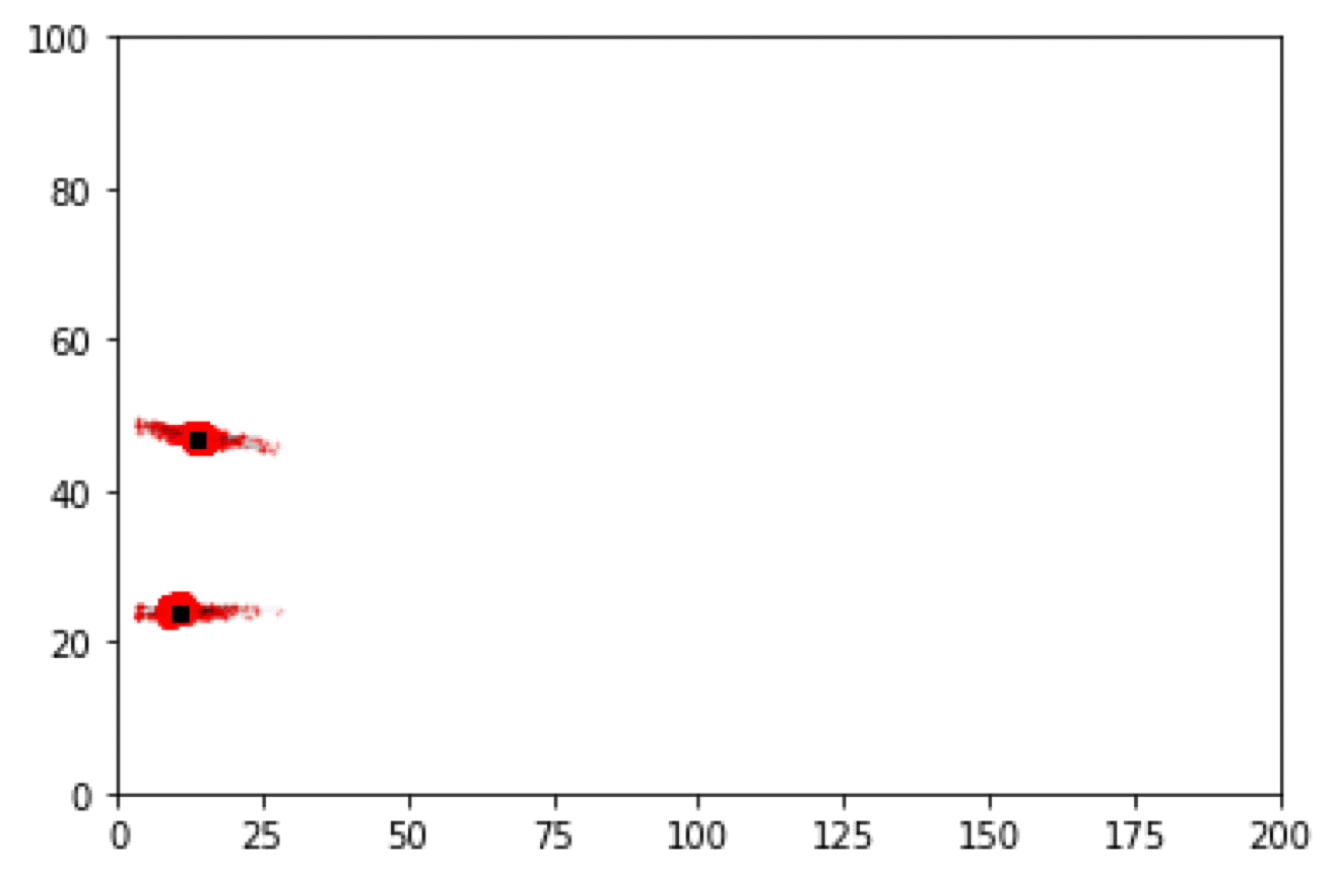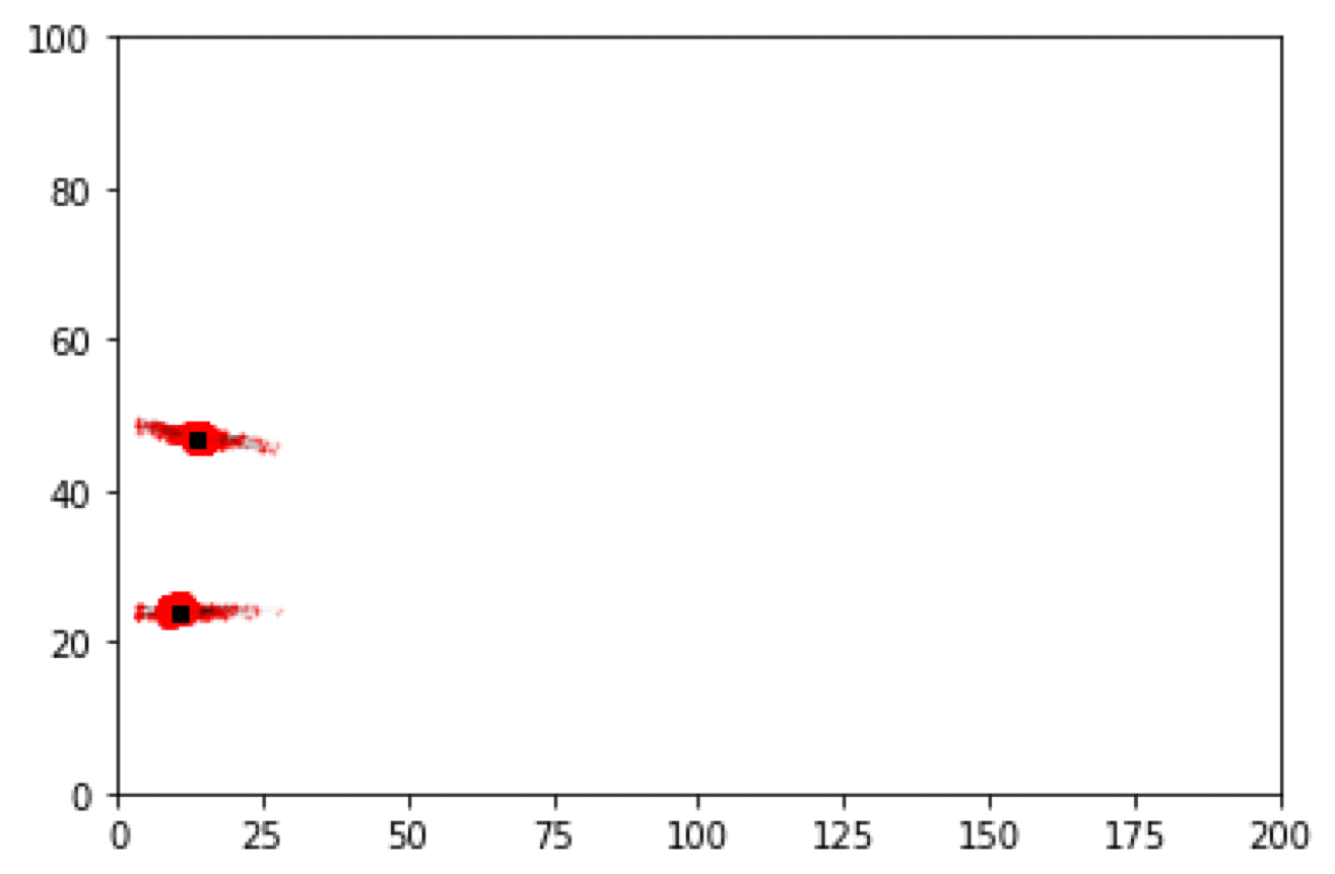

A Blueprint for Urban Analytics
12-13 April, Newcastle University
Dynamic Simulation Models, Data Assimilation & Uncertainty
Nick Malleson
Professor of Spatial Science
School of Geography, University of Leeds, UK
nickmalleson.co.uk
These slides:
Acknowledgements
Luke Archer & Kevin Minors, Data Science Interns, Leeds Institute for Data Analytics
Minh Kieu, Leeds Institute for Data Analytics
Jon Ward, School of Mathematics
Alison Heppenstall, School of Geography
Christoforos Anagnostopoulos, Jonathan Coello, and others at Improbable.

Difficult to model cities
Extremely complex systems
Interactions between individuals are key
Aggregate models are unsuitable
"Computationally convenient".
But cannot capture non-linear, complex systems.
Agent-Based Modelling is better?
Divergence
Nonlinear models predict near future well, but diverge over time.
Solution: Data Assimilation (?)
Try to improve estimates of the true system state by combining:
Noisy, real-world observations
Model estimates of the system state
Ensemble Kalman Filter (EnKF)

Bus Simulation with a Particle Filter
Crowd Simulation with a Particle Filter

Crowd Simulation with a Particle Filter

Dynamic City Simulation: What Next?
Short-term
Crowd simulation with a * Kalman Filter - computationally feasible?
Bus simulation with real GPS traces - applications to real cities
Medium-term
Simulations of larger systems - high streets, villages, towns
Integrate disparate models (e.g. microsimulation, population projections ... )
Long-term
Real-time, dynamic simulation of an urban area - part of a digital twin
Provide the best representation of now
Could transform the way that cities are managed
For more information about what we're doing

Data Assimilation for Agent-Based Models (dust)
Main aim: create new methods for dynamically assimilating data into agent-based models.
Uncertainty in agent-based models for smart city forecasts

Developing methods that can be used to better understand uncertainty in individual-level models of cities
Bringing the Social City to the Smart City
https://alisonheppenstall.co.uk/research/bringing-the-social-city-to-the-smart-city/
For more information about what we're doing
AAMAS presentation:
Understanding Input Data Requirements and Quantifying Uncertainty for Successfully Modelling ‘Smart’ Cities. Presentation to the 3rd International Workshop on Agent-Based Modelling of Urban Systems (ABMUS), part of the International Conference on Autonomous Agents and Multiagent Systems (AAMAS 2018). 10-15 July, Stockholm. Full abstract (pdf).
Now Recruiting:
Simulating Urban Systems
Post-doctoral Research Fellow (grade 7)
Full time, 3 years
Application deadline: April 2019

